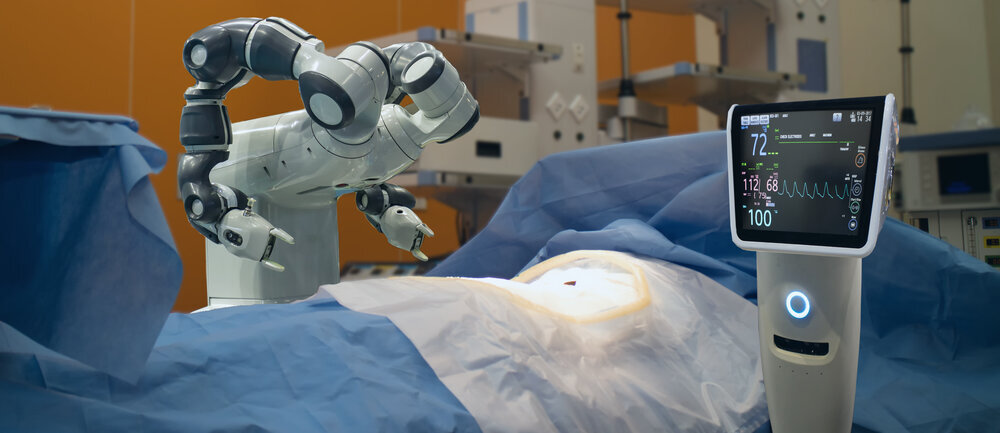ABOUT DR. ROMI CHOPRA
Dr. Paramjit “Romi” Chopra
Book Excerpt
Has Healthcare Found it’s New Innovator?
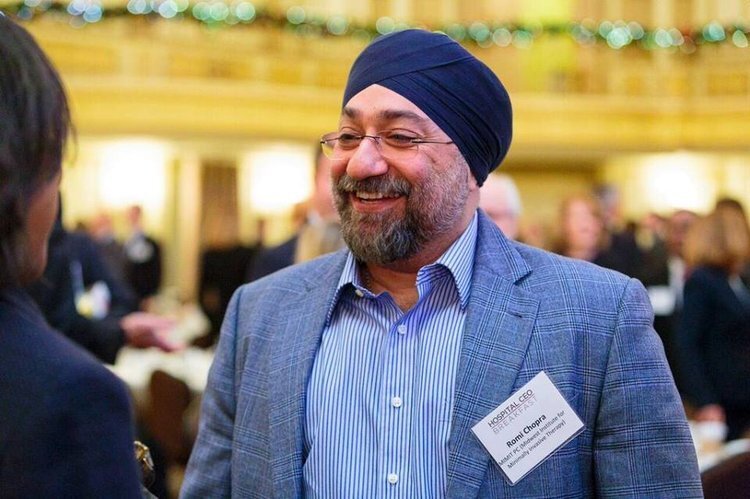

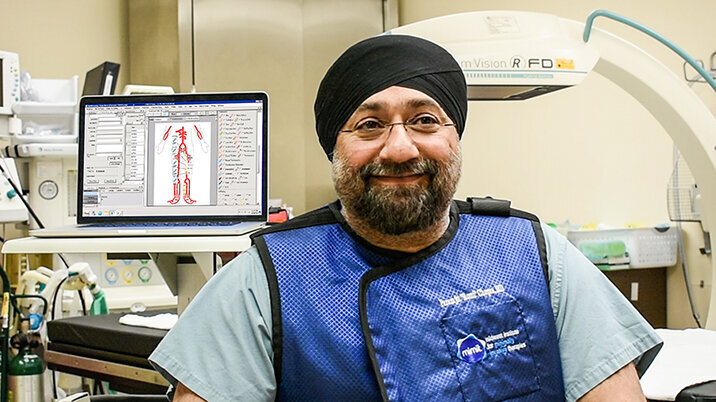

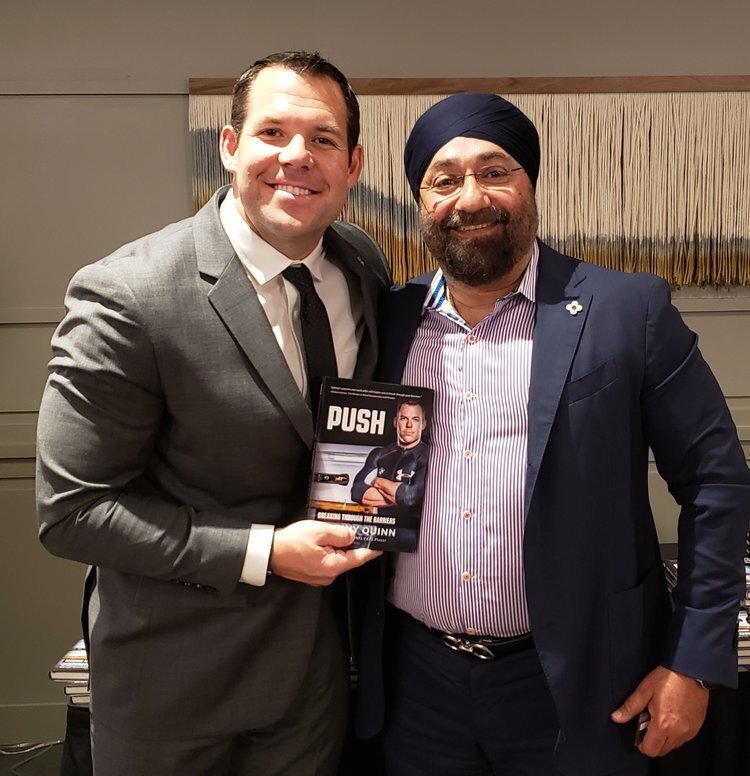

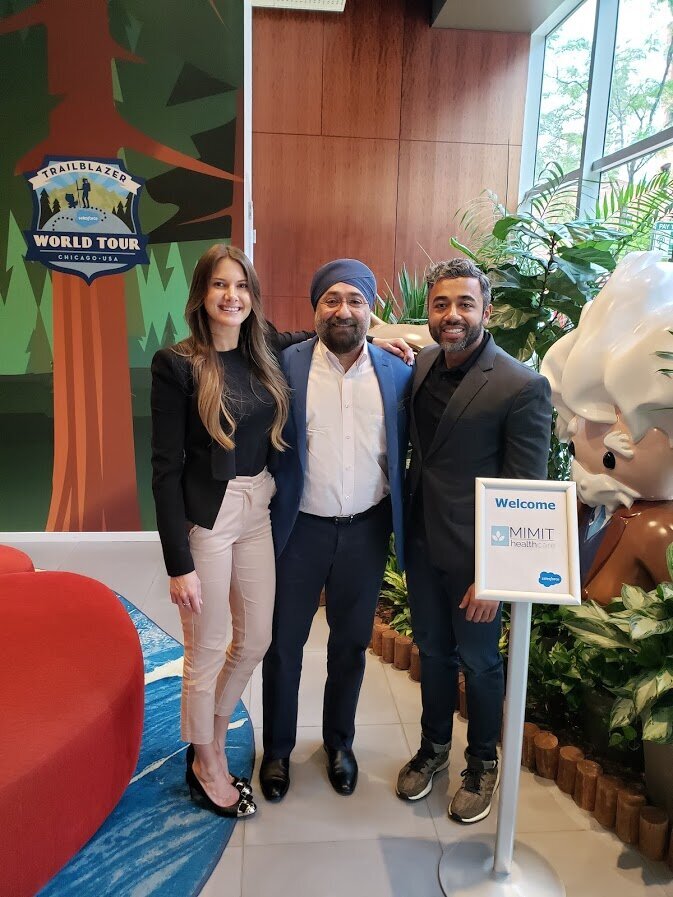

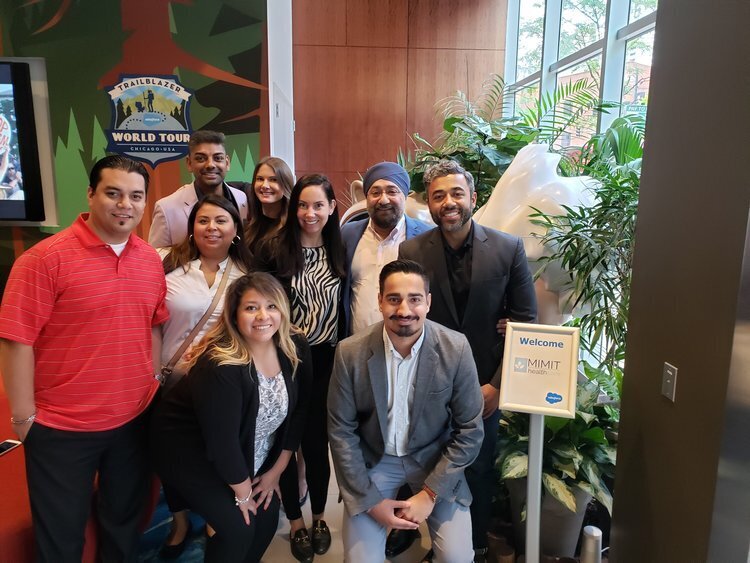
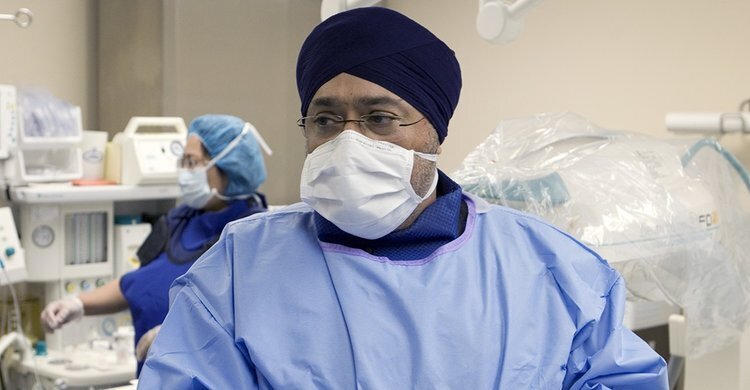
“Dr. Paramjit “Romi” Chopra is equal parts healer, pioneer, visionary and entrepreneur. Very few Physicians know how to design and execute on a value-based health delivery model at scale. It has been a delight to work with MIMIT Health as pioneers in healthcare.”
“I’m in the business of taking care of people,” said Chopra. “And I don’t care how you want to talk about care models, as B-to-B, B-to-C, or whatever. It’s all H-to-H, human-to-human, as far as I’m concerned. Because when you’re ill, you don’t go to a building. You want to go to another person.”
My name is Dr. Paramjit Chopra, and I am going to change healthcare.
I have been called a healthcare innovator, influencer and disrupter. Before we get into that, though, let me tell you a bit about my background.
Many people know me as the Founder, President, and CEO of MIMIT Health, which is one of the fastest-growing, independent, multi-specialty physician groups in Illinois. Others, however, know me for creating a new paradigm of care—one that offers minimally invasive treatments with the ultimate goal of healing a patient’s mind, body, and spirit.
I believe in bringing the best of both my worlds together, including my Eastern roots and extensive Western medical experience, to provide world-class care. In fact, I constantly hear from my patients how grateful they are that I am attentive to their physical, mental, and spiritual needs. It makes me happy knowing that my patients and their families feel comfortable, receive the medical information they need to make a decision, and get treated with cutting-edge healthcare technologies.
“I believe the path to long-term success lies in treating a patient’s mind, body, and spirit, not just their medical conditions. ”
I’m a graduate of the Seth Gordhandas Sunderas Medical College of Bombay University as well as Harvard Medical School in Boston. I completed my fellowship and residency at Brigham and Women’s Hospital. I also love to teach, so I’m an Associate Professor of Radiology at Rush University in Chicago.
But, above all else, I'm in the business of taking care of people.
And I don't care how you want to talk about care models, whether it’s B-to-B, B-to-C, or whatever. It's all H-to-H, human-to-human, as far as I'm concerned because when you're ill, you don't go to a building; you want to go to another person.
I started upending these status quo ideologies and asking questions that were more like a business entrepreneur than a medical doctor. This led me to what I like to call, “The Amazonification of Healthcare.”
“Dr. Chopra is a phenomenal physician and healer. In an era of assembly-line medicine, he pushes the proverbial “stop” button and takes the time to befriend his patients. He makes sure patients understand their medical care and the rationale for his treatment plan. More than that though, Dr. Chopra does not simply treat one problem at one office visit. He creates a spiritual connection with his patients that engenders continual trust. He treats the body and the psyche. He is the very definition of physician as caregiver and confidant. ”
The “Amazonification of Healthcare” is all about improving customer service and patient experience.
Let’s back up, so I can tell you what I mean by that. Chances are you are familiar with Amazon. Apart from delivering your orders in two days and reshaping the e-commerce industry, their unique approach to customer service is transforming every industry. They know that it’s no longer just about the product but more importantly the customer experience, or in our case, the patient experience.
The Amazonification of an industry uses the scientifically proven drivers of friendship to help brands build deeper relationships with their customers based on affection, relevance, and trust. Amazon uses several aspects of friendship to create customer loyalty and position themselves as champions of the brand. These aspects are connecting, honesty, listening, loyalty, and story/style.
As one of the fastest-growing, multi-specialty physician groups in Illinois, we know that we need to adapt to changing needs and technology in order to provide excellent care and receive a return on investment. My quest to find a “better way” led me to find solutions.
You are not delivering the best experience possible for your patients if you are not connected, mobile, and collaborative to deliver them more patient-centered care. Patients aren’t accepting what providers tell them anymore. Instead, they want to take control of their own health and want a more connected relationship with their providers.
The first steps of creating a more connected relationship is to identify patient needs, meet current patient needs, constantly uncover evolving needs, and match the experience to treatment decisions. This is fundamental as to why I decided to pursue Health Cloud.
Part of what keeps people coming back to Amazon is their incredible ability to connect like-minded people and create a community. The healthcare industry has left a lot on the table in this area. Health Cloud is a key part of how we are bridging this gap. It allows us to interact with patients and their caregivers in new ways. This produces not only a better patient care experience, but better outcomes as well. We can use this technology to improve patients’ healthcare journey by tracking patient preferences, such as how they want to be contacted, and adding everyone involved in patient care to the system to streamline communication.
Utilizing these systems not only benefit the patient but our practice as a whole since we can track the effectiveness of the patient journey. Healthcare companies need to be creative in seeking new ways to connect, and MIMIT Health is listening.
“The world needs more people like Dr. Romi Chopra. He is a person who is truly a charismatic, caring, and true professional. The deep connection he makes with his staff, patients, friends, and industry colleagues is tremendous. He is a type of individual that truly cares about the outcomes of all things he is involved with in his life. His perspective and approach to his patients are world class.”
Building and maintaining this important relationship with patients begins by having systems in place to help us manage the many moving parts.
We incorporate the best practices from Amazon, Google, Salesforce, and other high-tech software into the healthcare practice to improve and optimize the patient experience. For example, our providers utilize the latest artificial intelligence to streamline care and we at MIMIT Health utilize statistics to tailor treatments to patients.
Trends in Healthcare
Creating financial sustainability in an uncertain health economy
Between 2017-2022, global health care spending is expected to rise 5.4 percent annually to just over $10 trillion.
Therefore, we can expect the following will impact the financial performance of the healthcare ecosystem:
Emergence of personalized medicine
Increased use of exponential technologies
Entry of disruptive and non-traditional competitors
Demand for expanded care delivery sites
Revamped payment and public funding models
Knowing this, developing public-private partnerships, investing in prevention and well-being, and learning from industries outside of health care will also be imperative.
Using new care delivery models to improve access and affordability
Moving from volume to value will require building an outcomes-based financial model and data infrastructure to maximize value-based care (VBC) reimbursement pathways, which will likely be fundamental to many health systems’ sustainable growth.
Clinical innovations, patient preferences, and government program payment policies are prompting hospitals to shift certain services to alternative points of care and even to virtual environments that benefit from a cost and access perspective. It will be imperative for stakeholders across the healthcare ecosystem to collaborate around a whole-life approach to funding and delivering sustainable care.
Adapting to changing consumer needs, demands, and expectations
Patients and caregivers are expecting streamlined service with greater transparency and accessibility concerning price, quality, and safety.
Therefore, to help keep up with increasingly engaged consumers, providers and payers will have to shift their priorities to take advantage of emerging opportunities to establish more direct, personal relationships. Organizations that understand and act on how consumers would like to use digital health, telehealth, wearable devices, and other technologies will be in a great position to develop patient engagement strategies to help individuals make more informed health care decisions.
Investing in digital innovation and transformation
Digital technologies are supporting health systems’ efforts to transition to new models of patient-centered care and helping them develop “smart health” approaches to increase access and affordability, improve quality, and lower costs.
Blockchain, artificial intelligence, and virtual reality are just some of the technologies disrupting healthcare. These technologies are helping with diagnosis and treatment, including helping with speed, quality, and accuracy as well as improving the patient experience.
Key takeaway
Healthcare leaders need to maintain the talent continuum that offers resources for redefined roles of the healthcare practitioners. Providers should proactively seek opportunities for augmentation and automation in clinical workflows, which will allow clinicians and patients to benefit from an aligned financial reimbursement system, new technologies, innovative talent models, and extended locations where care is delivered.
MIMIT Health uses high tech systems like Salesforce and artificial intelligence in order to collect and process data that improves the patient experience
Just as Amazon does for retail, MIMIT Health wants to make healthcare better, faster, and cheaper. This helps everyone as we want the highest quality care while utilizing the least amount of resources to produce the greatest impact. We use high tech systems, like Salesforce and artificial intelligence, to collect and process data that improves the patient experience. A plethora of data is collected and, once that data is processed, it becomes information to help us make the right decisions regarding care.
When we have the right information, the right decision is made, and it becomes an actual insight we can use.
Being a better listener also helps us advise patients and customers better. In this “Amazonified” healthcare industry, companies need to make a better effort to get to know their customers well enough to anticipate what kind of questions they’ll have. We can look at those parameters and predict what could happen so that we can prevent it from happening.
This means we can personalize your care and analyze patient experience data, which ultimately enhances treatment decisions and customizes care journeys. Since we have these advanced technological systems collecting data in order to make better, cheaper, faster, and effective decisions, we are able to drive costs down, which increases customer loyalty.
Price shouldn’t be a hindrance to solving health problems.
By implementing these technological mergers between Salesforce and Health Cloud, patients have increased survival rates and better quality of life; pharmaceutical companies gain a detailed understanding of patient journeys; and providers are more efficient, have reduced hospitalization rates, and more resources to make it all happen, all of which drive down costs. Not only do you get world-class healthcare, but it’s also cost effective. The “Amazonification” of healthcare centers around mutual success for both the patient and the provider.
We’ve spent time observing the big players in the business world, listening to our patients and customers, and building a strong foundation on which to stand.
We have a unique position in that we aren’t afraid to implement new technology all while maintaining our authentic mission. Just as Amazon has the compelling story of working out of Jeff Bezos’ garage in the beginning, MIMIT Health’s origin was grounded in treating a patient’s mind, body, and spirit in the most cost-effective way possible. We have tapped into the popularity and hunger for health and wellness that people are desperately starving for. In that way, we are continuing to create a centralized story and style that can be associated with MIMIT Health.
Key US Healthcare Facts to Know in 2021:
Only 18.1% of Americans are covered by Medicare.
The United States could save $175 billion in healthcare costs by halving administrative costs.
The American healthcare industry was worth $24.7 billion in 1960. It is now worth over $8.45 trillion.
If you break your leg, you could end up with a bill for $7,500. If you need to stay in the hospital for three days, it would probably cost about $30,000 (Source: medical.mit.edu)
You’ll pay 10 times as much for the anti-cancer drug Avastin in the US than in the UK.
Almost 4 out of 10 Americans are morbidly obese. Over 7 out of 10 are overweight.
Obesity-related health issues cost over $150 billion a year in the US alone.
1.4 million Americans went overseas for medical care in 2017 to get a better deal.
By 2030, America will have at least 40,800 unfilled posts for physicians.
AI will revolutionize diagnostic practices.
By being on the forefront of this movement, I hope to pave the way for other practices to follow suit.
We take all of this seriously because we want to make sure we’re all on the same page. By doing so, healthcare organizations get a good outcome and patients go home happier and healthier than when we first met them.
Taking on new, cutting-edge technology can seem like an unknown risk to most healthcare administrators in similar situations. But there isn’t any reward without a little risk. If you take a look at the state of technology and the world today, every industry is moving in this direction, so why should healthcare be any different? By being on the forefront of this movement, I hope to pave the way for other practices to follow suit. I jumped at the opportunity to incorporate this cutting-edge technology because I knew that if I improved the patient experience, I also improved my business, creating a symbiotic relationship. A service so fundamental to human life requires an innovative and thoughtful approach in order to drive change, and I aim to do this every day.
Dr. Chopra | Mimit Health Video
MIMIT Health is one of the fastest-growing independent multi-specialty physician groups in Illinois, providing excellence in patient care, health care, research, and medical education. MIMIT Health provides world-class health care combined with minimally invasive treatments by industry-leading doctors, physicians, and surgeons.
To keep up to date with Dr. Chopra and read articles where he has been published click below
Healthcare Peer-Related Reviews:
Dr. Paramjit “Romi” Chopra and his company MIMIT Health have been recognized by industry leaders and patients as a pioneer, visionary and innovator in the healthcare industry.
Here are a few reviews:
“Dr. Chopra and MIMIT Health are visionaries in this industry and your approach to medicine should be taught in Med School!”
Boston Scientific, a leading innovator of less-invasive medical solutions is in the planning stages to have MIMIT Health become a training site for all Boston Scientific peripheral procedures, including more options once CMS/ASC approval for PCI is attained.
“Dr. Paramjit “Romi” Chopra is equal parts healer, pioneer, visionary and entrepreneur. Very few Physicians know how to design and execute on a value-based health delivery model at scale. Dr. Chopra was one of the first ambulatory practices to embrace Voice AI Technology into his practice to improve the patient experience and increase operational efficiency. It has been a delight to work with MIMIT Health as pioneers in healthcare”
Saykara is a voice and AI-powered healthcare virtual assistant that simplifies the clinical documentation process for physicians
“MIMIT Health has identified three criteria they must address to support a patient’s overall journey: treat, empower, heal. “The more data I collect, the more analysis I do … the more insights I have, and the better I do my job,” said Dr. Chopra. Bridge Connector integrations have allowed MIMIT to deliver their unique brand of “enlightened health care” with more transparency and more efficiency — care providers and staff save around two hours a day, per patient, by removing the dual data entry burden”
Bridge Connector, a data-driven, workflow engine that connects disparate data systems in health care IT more quickly and cost-efficiently has written a Case Study on MIMIT Health and how MIMIt Health has improved the patient experience:
Read Case Study: https://bridgeconnector.co/physician-group-streamlines-processes/
Patient Reviews:
“Dr. Chopra is a phenomenal physician and healer. In an era of assembly-line medicine, he pushes the proverbial “stop” button and takes the time to befriend his patients. He makes sure patients understand their medical care and the rationale for his treatment plan. More than that though, Dr. Chopra does not simply treat one problem at one office visit. He creates a spiritual connection with his patients that engenders continual trust. He treats the body and the psyche. He is the very definition of physician as caregiver and confidant.”
“The world needs more people like Dr. Romi Chopra. He is a person who is truly a charismatic, caring, and true professional. The deep connection he makes with his staff, patients, friends, and industry colleagues is tremendous. He is a type of individual that truly cares about the outcomes of all things he is involved with in his life. His perspective and approach to his patients are world class”
Healthcare has Found it’s New Innovator
About Dr. Chopra
President and CEO of the Midwestern Institute for Minimally Invasive Therapies (MIMIT) or MIMIT Health
Interventional Radiologist with over 30 years of experience in the fields of interventional radiology and endovascular therapy
Seth Gordhandas Sunderas Medical College of Bombay University, 1979-1988
Harvard Medical School, 1989-1994
Interventional Radiology Fellow - Brigham and Women’s Hospital, 1989-1994
Associate Professor of Radiology at Rush University in Chicago
Awarded the Distinguished Physician Award and U.S. Congressional Medal for Excellence in 2018
Board member of the Indo-American Center and an active member of the Society of Interventional Radiology, Radiology Business Management Association, and the American Society of Physician Executives.

MimitHealth.com
The Midwest Institute for Minimally Invasive Therapies, or MIMIT Health, is a multi-specialty group comprised of physicians, surgeons, and midlevel providers who offer minimally invasive, targeted treatments of vascular and non-vascular conditions. Compared to traditional surgery, our procedures offer reduced risk, reduced pain, and shorter recovery times with the help of world-class physicians, image-guided techniques, and innovative technologies.
Our mission is to put the “care” back in healthcare and to help our patients return to a state of well-being. We do this by educating our patients and providing high-quality, cost-effective healthcare through a multi-specialty group of healthcare providers who value our holistic treatment approach: mind, body, and spirit.






